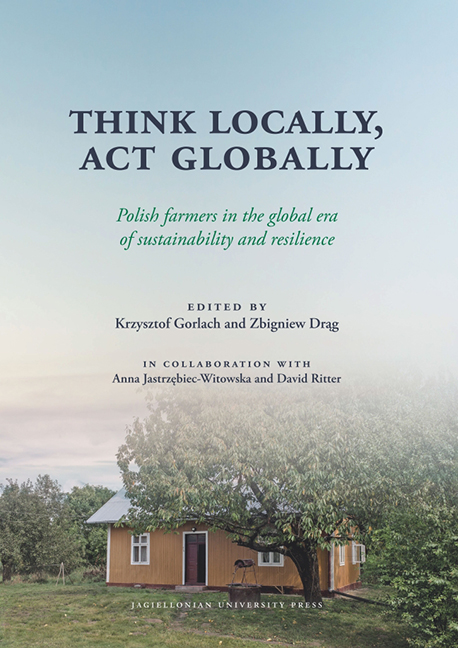Book contents
- Frontmatter
- Contents
- Family Farming: A foreword
- An Introductory Letter from the First Editor: Where the horses, cows, and even cats had their own names
- Part One Theoretical and Methodological Considerations
- Part Two Changes in the Post-Communist Transformation
- Part Three Diversification of Farmers’ Strategies
- Part Four Some Independent Studies
- Conclusion: Some Final Remarks from the First Editor
- Afterword: Renewing a Sociology of Agriculture
- Biograms
Chapter Seven - Polish Farm Women as Managers
Published online by Cambridge University Press: 16 July 2022
- Frontmatter
- Contents
- Family Farming: A foreword
- An Introductory Letter from the First Editor: Where the horses, cows, and even cats had their own names
- Part One Theoretical and Methodological Considerations
- Part Two Changes in the Post-Communist Transformation
- Part Three Diversification of Farmers’ Strategies
- Part Four Some Independent Studies
- Conclusion: Some Final Remarks from the First Editor
- Afterword: Renewing a Sociology of Agriculture
- Biograms
Summary
Introductory Remarks
Sex- and gender-related social inequalities in the job market were of interest to numerous sociologists for nearly the last half of the 20th century but in the last two decades analyses of these issues have become more intense and more substantive. Undoubtedly, this is strongly connected with the growing popularity of feminist theories and the increased social activity of women, especially in the form of feminist movements. Analyzing gender inequalities in the job market—and they are reflected upon in this publication—some researchers (see Domański, 1999, pp. 29–37) refer to such mechanisms and processes as segregation of professions (relating to divisions made between male and female professions), ghettoization (division of female and male tasks within a given profession) or professional re-segregation (feminization of professions previously dominated by men), all of which impede professional integration aimed at achieving gender balance in a particular profession. Although direct workplace and profession-related discrimination of women mostly happens on a micro- -scale at the level of companies, business enterprises, and offices, these structural mechanisms indirectly enhance the discrimination. It is a fact that women, despite abilities and qualifications similar to those of men, have lower income and lower professional positions, usually reaching “the glass ceiling” at some point in their career. It is also a fact that in the more holistic approach to economics professions traditionally recognized as female, women are considered less prestigious and have fewer power resources (see Domański, 1992, 1999).
Without a doubt, agriculture is one of the economic sectors where gender-related inequalities are externalized and a traditional Polish farm is a special type of enterprise that petrifies these inequalities. As Polish researcher Barbara Tryfan notes, for many years the traditional type of peasant economy has determined the order of prestige in the family group according to economic usefulness. As the man performed works recognized as important and had decision-making powers, his position in the family was privileged. Without permission from her husband, a wife could not sell any livestock or equipment, even though it came from her dowry.
- Type
- Chapter
- Information
- Think Locally, Act GloballyPolish farmers in the global era of sustainability and resilience, pp. 327 - 354Publisher: Jagiellonian University PressPrint publication year: 2021



